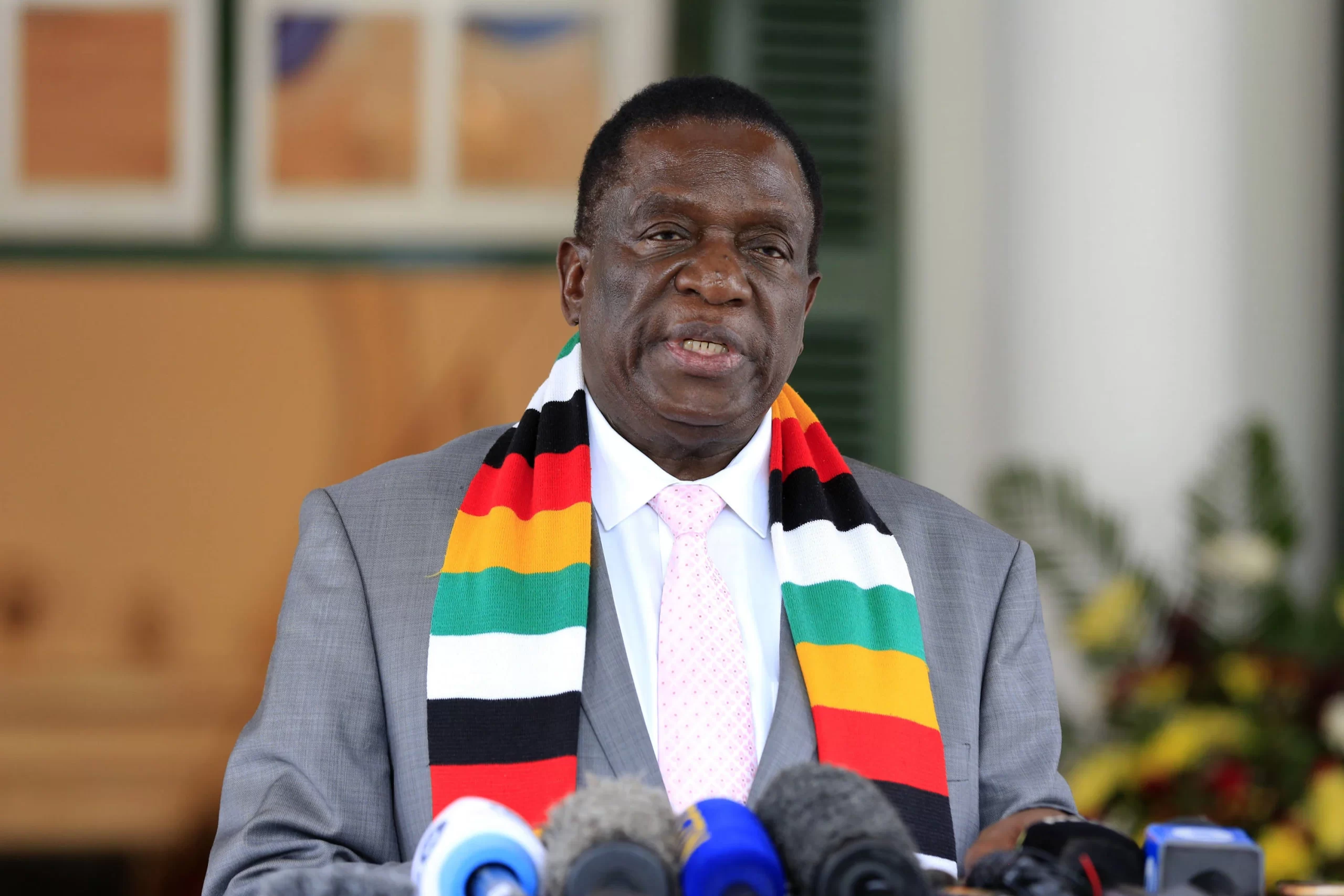President Emmerson Mnangagwa hosted creditors and financial executives Monday to discuss Zimbabwe’s efforts to resolve its $12.7 billion external debt and restructure arrears.
The nation’s debt, which represents 81% of its GDP, presents a significant challenge for a country with a history of financial crises, including hyperinflation and failed currency reforms.
Mnangagwa revealed that Zimbabwe is in negotiations with the International Monetary Fund (IMF) for a Staff Monitored Program (SMP), which would set the stage for crucial policy reforms. African Development Bank (AfDB) President Akinwumi Adesina expressed the bank’s willingness to support Zimbabwe’s reform efforts and help clear arrears.
Finance Minister Mthuli Ncube said Zimbabwe aims to have clearer timelines for debt restructuring by mid-2025, once it secures bridge financing from lenders. Analysts warn that addressing the country’s arrears is vital for its economic recovery, as Zimbabwe currently cannot access funding from the IMF due to its debt issues.
Clearing arrears with key creditors, including the AfDB, World Bank, and European Investment Bank, is seen as essential for unlocking future financial support. The IMF has been unable to provide funding due to Zimbabwe’s unsustainable debt levels.
While the SMP would not include financial aid from the IMF, it would signal a shift toward more stable economic policies. Zimbabwe’s debt situation remains complicated, with a significant portion in arrears and penalties, hindering access to international financial assistance.

